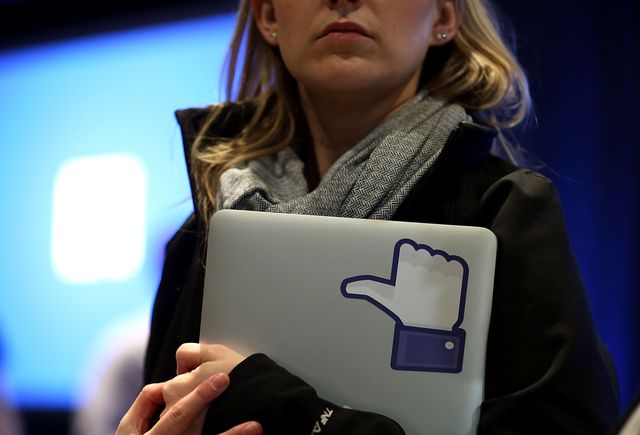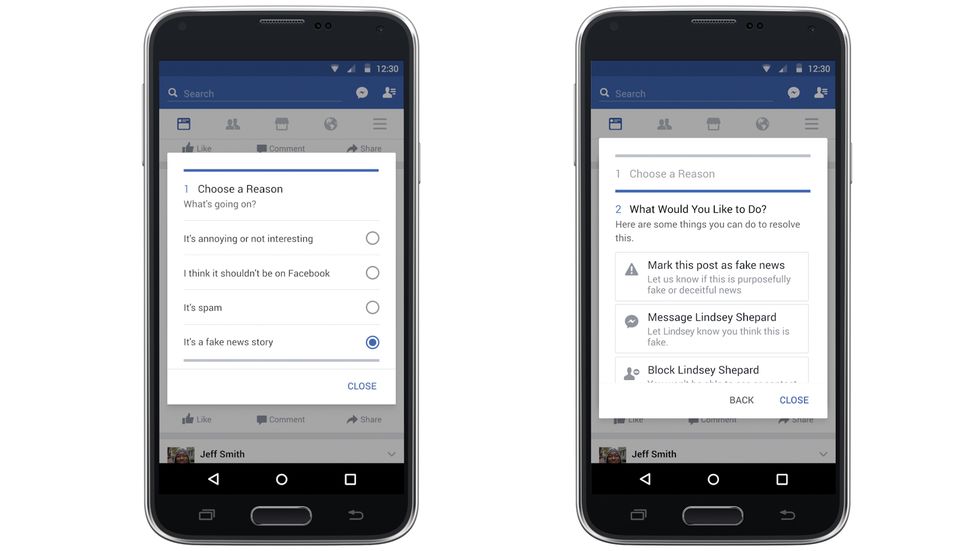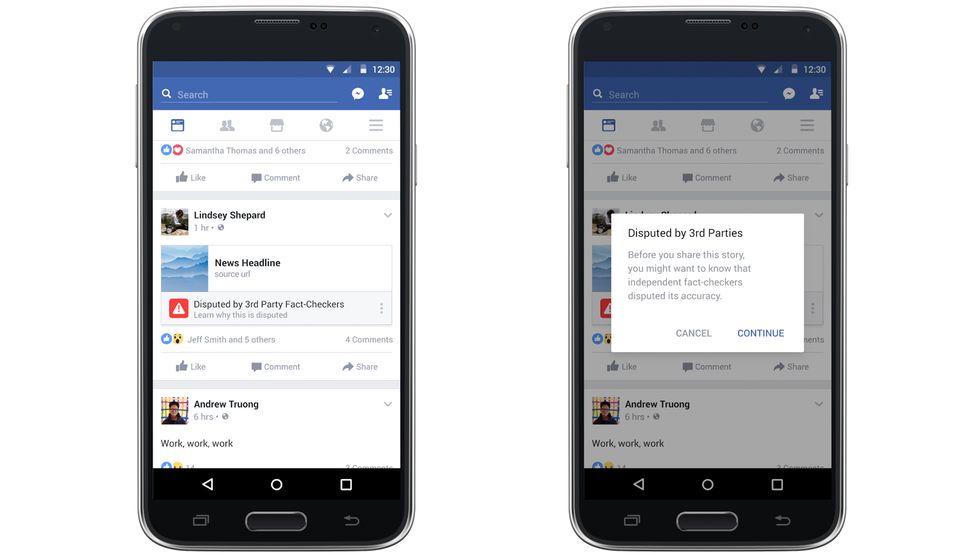Facebook is the one place on the Internet where you can see your liberal college friends freaking out about Trump, your conservative friends telling them to calm down, and your crazy (but lovely) great-aunt ranting about how all politicians are lizard people. That mix is what makes the social network so popular, but because Facebook has become where most people get their news these days, that also makes it potentially dangerous.
The site has become a central location for "fake news," hoax stories posted on shady news sites that are purposely meant to deceive people—and make lots of money from ad sales. One teenager in Macedonia told NBC News he has made at least $60,000 in the last six months from posting fake news specifically aimed at Trump supporters. (One of his most popular headlines: "BREAKING: Obama Confirms Refusal To Leave White House, He Will Stay In Power!") Another fake-news writer told the Washington Post that he thinks Trump was elected because of people like him, but still insists his work is satire.
Now, Facebook has finally announced its plans to deal with the scourge of fake news. First of all, they're making it easier to report a story as fake news, and once you do so, you can submit the report to Facebook, message the friend (OK, great aunt) who posted it, or even block the poster from your feed.
But it's the next part that is a massive change. Facebook announced it's working with a third-party group of fact checkers that have signed on to Poynter's International Fact Checking Code of Principles. Those fact-checkers will include outlets like Snopes, ABC News, and the Associated Press. If the fact-checkers say a story is fake, it will get flagged as "disputed" and there will be a link to a post that explains why. It might also appear lower on your news feed, too, and it can't be turned into a promoted ad post, either. And when you try to share a disputed story, you'll see a pop-up message to make sure you're really sure about this.
Not everybody is happy about Facebook's big move. Business Insider reports that conservatives are skeptical that the fact-checkers will truly be balanced when they determine what news is "fake" and what is real. They also think that the organizations who are part of the fact-checking group are already partisan in the first place. Previously, Facebook came under fire after Gizmodo reported that editors for its Trending section were biased against conservative media sources.
Facebook insists it's not going after right-wing media—instead, they're going after outright hoaxes, like, say, stories that say celebrities have died when they're actually alive and kicking. These policies will focus on the "bottom of the barrel" websites that only exist to mislead people. "We are not looking to flag legitimate organizations," Adam Mosseri, Facebook vice president of product development, told the Washington Post. "We're looking for pages posing as legitimate organizations."
So out-there opinion pieces can stay, but posts about Obama secretly being a lizard are out. Fair enough. The below video shows exactly how the new process will work.















